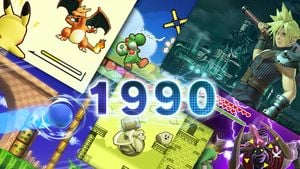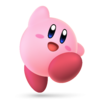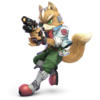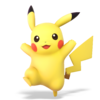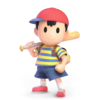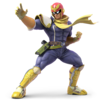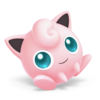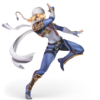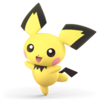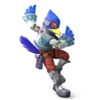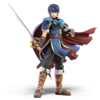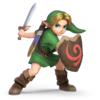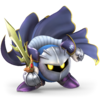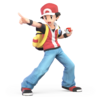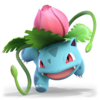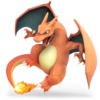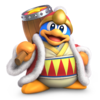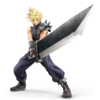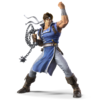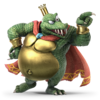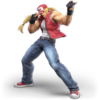Hailing from the '90s: Difference between revisions
From SmashWiki, the Super Smash Bros. wiki
Jump to navigationJump to search
Capstalker (talk | contribs) (→Trivia) |
m (→Trivia) |
||
| Line 134: | Line 134: | ||
*The banner for the event pays homage to ''Pokemon Red and Blue'', ''Super Mario World 2: Yoshi's Island'', ''Final Fantasy VII'', ''Sonic the Hedgehog'', ''Kirby's Dream Land'' and ''The Legend of Zelda: Ocarina of Time''. | *The banner for the event pays homage to ''Pokemon Red and Blue'', ''Super Mario World 2: Yoshi's Island'', ''Final Fantasy VII'', ''Sonic the Hedgehog'', ''Kirby's Dream Land'' and ''The Legend of Zelda: Ocarina of Time''. | ||
*[[Hero#Dragon Quest IV|Solo]] is the only playable character originating from the 1990s not present in the event, due to him being an alternate costume for [[Hero (SSBU)|the Luminary]]. | *[[Hero#Dragon Quest IV|Solo]] is the only playable character originating from the 1990s not present in the event, due to him being an alternate costume for [[Hero (SSBU)|the Luminary]]. | ||
*[[Spiral Mountain]] | *[[Spiral Mountain]] is the only stage from a 1990s game not present in the event. | ||
**This could arguably also apply to [[Castle Siege]], [[Coliseum]] and [[King of Fighters Stadium]], as while these stages are not based on specific games, the concepts originate from ''Fire Emblem: Shadow Dragon and the Blade of Light'' and ''Fatal Fury: King of Fighters''. | **This could arguably also apply to [[Castle Siege]], [[Coliseum]] and [[King of Fighters Stadium]], as while these stages are not based on specific games, the concepts originate from ''Fire Emblem: Shadow Dragon and the Blade of Light'' and ''Fatal Fury: King of Fighters''. | ||
*[[Mushroom Kingdom II]] is present in the event despite coming from a 1980s game, likely as a reference to ''Super Mario Bros. 2'' (known as ''Super Mario USA'' in Japanese) first releasing in Japan in 1992. | *[[Mushroom Kingdom II]] is present in the event despite coming from a 1980s game, likely as a reference to ''Super Mario Bros. 2'' (known as ''Super Mario USA'' in Japanese) first releasing in Japan in 1992. | ||
Revision as of 06:38, February 20, 2020
Hailing from the '90s (対決! 1990年代生まれ), known as Fighting in the Nineties in PAL regions, is an upcoming Event Tourney that will run from 6 a.m. on February 21, 2020 to 6 a.m. on February 24, 2020 (UTC). During the event, only characters and stages that originated from games released in Japan during the 1990s can be used.
Description
- This tourney features fighters and stages that were created in the '90s!
- The further you advance, the better the spirit you'll win![1]
Rules
- Format: Smash
- Rules: Time
- Time Limit: 2:30
- FS Meter: On
- Items: Medium
Available fighters
Available stages
Trivia
- If Pokémon Trainer's Pokémon are separated, Hailing from the '90s has the most amount of available fighters for an Event Tourney, with a total number of 29 available fighters.
- If Pokémon Trainer is counted as a single fighter, then it has second most available fighters with 27 fighters, behind Heroes Vs. Villains which has 28 fighters.
- This is the second Event Tourney based around a decade, following Bringing Back the '80s.
- The banner for the event pays homage to Pokemon Red and Blue, Super Mario World 2: Yoshi's Island, Final Fantasy VII, Sonic the Hedgehog, Kirby's Dream Land and The Legend of Zelda: Ocarina of Time.
- Solo is the only playable character originating from the 1990s not present in the event, due to him being an alternate costume for the Luminary.
- Spiral Mountain is the only stage from a 1990s game not present in the event.
- This could arguably also apply to Castle Siege, Coliseum and King of Fighters Stadium, as while these stages are not based on specific games, the concepts originate from Fire Emblem: Shadow Dragon and the Blade of Light and Fatal Fury: King of Fighters.
- Mushroom Kingdom II is present in the event despite coming from a 1980s game, likely as a reference to Super Mario Bros. 2 (known as Super Mario USA in Japanese) first releasing in Japan in 1992.
- The stage actually originated from Yume Kōjō: Doki Doki Panic, first released in Japan in 1987.
- The European/Australian name may be a reference to Maurizio De Jorio's song "Running in the 90s".
